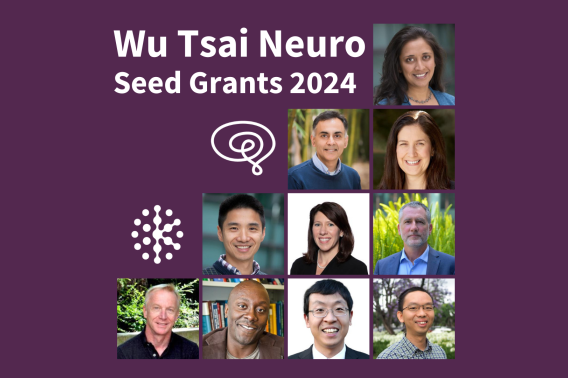Longzhi Tan named a 2024 McKnight Scholar

The Board of Directors of The McKnight Endowment Fund for Neuroscience have named ten neuroscientists to receive the 2024 McKnight Scholar Award.
The prestigious award supports "young scientists who are in the early stages of establishing their own independent laboratories and research careers and who have demonstrated a commitment to neuroscience," according to the McKnight Foundation's announcement on June 20, 2024.
Among the awardees was Longzhi Tan, an assistant professor of neurobiology at Stanford and recipient of a 2023 Wu Tsai Neuro Seed Grant Award.
Here's the McKnight Foundation's summary of Tan's award-winning research:
Longzhi Tan, Ph.D., Assistant Professor of Neurobiology, Stanford University, Stanford, CA
How Does 3D Genome Architecture Shape the Development and Aging of the Brain?
Fitting the 6 billion base pairs of DNA into a tiny cell nucleus is more than an impressive packing job – it’s a key to how DNA functions. Dr. Longzhi Tan and his team are using a revolutionary “biochemical microscope” that can show the 3D shape of DNA molecules within a cell to a resolution unmatched by optical telescopes, and in the process are discovering that the unique folding can tell researchers a great deal about a cell. In fact, independent of anything else, Dr. Tan can tell what type of cell a piece of DNA came from, and the relative age of the animal that the cell came from, simply by looking at the DNA’s shape.
The biochemical microscope at the heart of the research uses proximity ligation instead of optics. It determines which base pairs are nearest to each other, one after the other, and can quickly and affordably build a picture of the 3D structure of the DNA using just that information. Part of the project will involve constructing the next generation of this tool so Dr. Tan’s team can 3D-locate every RNA molecule in a brain cell and where it is in relation to the folded DNA to understand more about how they interact. This will contribute to a rulebook about DNA folding that can help researchers find ways to manipulate DNA and understand how misfolded DNA affects development. Since the folding degrades with age as well, understanding how this influences aging might provide insights into ways to reverse or slow some impacts of aging. A final aim will look at how mutations and folding differences influence differences between individuals.



